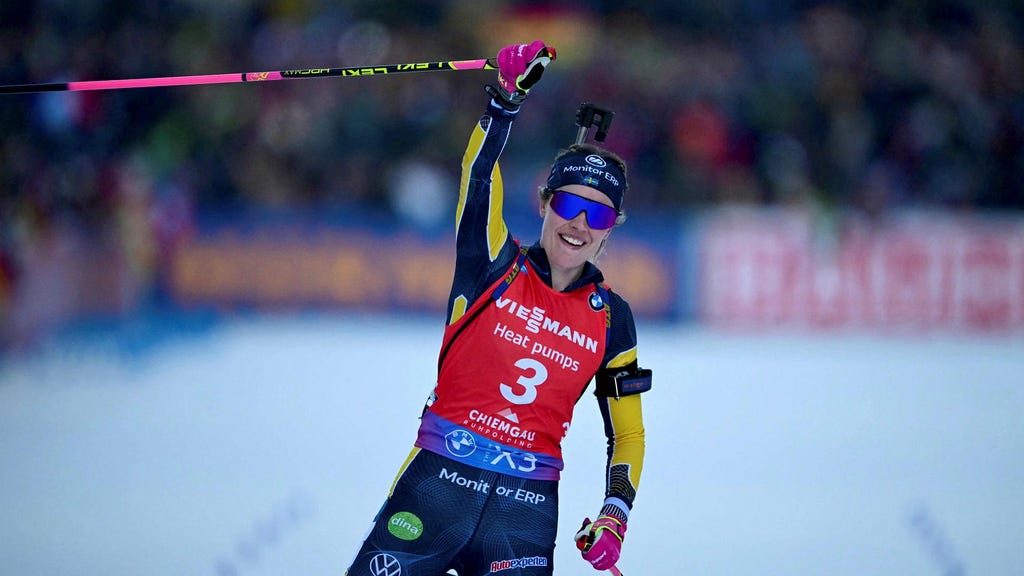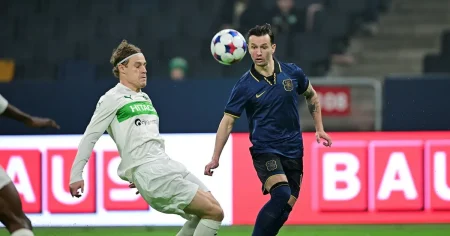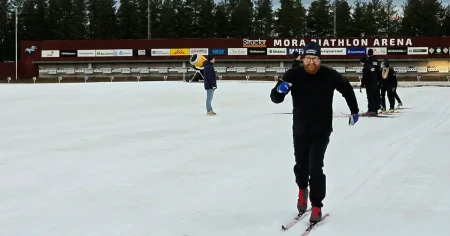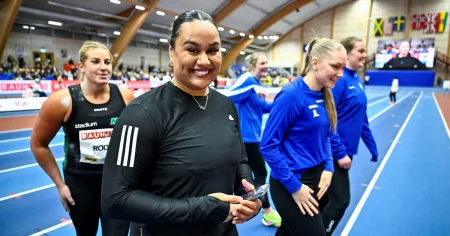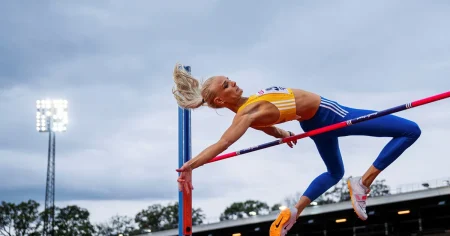Elvira Öberg experienced a remarkable turnaround in the biathlon world cup in Ruhpolding, Germany, transitioning from a disappointing Saturday in the relay race to a triumphant Sunday with an individual victory. The 25-year-old Swedish biathlete, who had compromised Sweden’s podium chances the previous day, showcased her resilience and exceptional shooting skills to secure her second individual win of the season. This victory propelled her further up the overall World Cup standings, closing the gap on leader Franziska Preuss. Öberg’s performance underscored her potential as a dominant force in the sport, demonstrating both her physical prowess on the ski trails and her unwavering accuracy on the shooting range.
Öberg’s triumph began with a strong start, maintaining a clean shooting record through the first three stages of the competition. This consistency placed her firmly within the leading pack, alongside French competitor Lou Jeanmonnot and Italian Dorothea Wierer. As the race progressed into the penultimate lap, it became increasingly evident that these three athletes had separated themselves from the rest of the field, setting the stage for a thrilling final shooting stage to determine the ultimate victor. The tension mounted as the trio approached the decisive moment, with the outcome hanging in the balance.
The final shooting stage proved to be the defining moment of the race, a test of nerves and precision under immense pressure. While Jeanmonnot and Wierer faltered, succumbing to the pressure and missing crucial shots, Öberg maintained her composure and perfect shooting record. This flawless performance allowed her to seize the decisive advantage, leaving her competitors behind as she embarked on the final stretch towards the finish line. With a comfortable lead secured, Öberg confidently glided across the snow, savoring the moment and celebrating her well-deserved victory. The win solidified her position as a top contender in the World Cup.
Öberg’s victory not only marked a personal triumph but also signified a significant step in her pursuit of the overall World Cup title. Entering the Ruhpolding competition, she occupied the third position in the standings, trailing Preuss by a considerable margin of 193 points. However, her dominant performance significantly narrowed that gap, injecting renewed excitement into the race for the coveted crystal globe. Öberg’s consistent podium finishes and her ability to deliver under pressure have established her as a serious threat to Preuss’s reign, promising an exhilarating battle for supremacy throughout the remainder of the season.
The success of the Swedish team extended beyond Elvira Öberg’s individual victory, with her older sister, Hanna Öberg, also achieving a season-best performance. The 29-year-old finished in sixth place, demonstrating the depth of talent within the Swedish biathlon ranks. Hanna Öberg’s result further bolstered the team’s overall standing and contributed to their growing reputation as a force to be reckoned with on the international stage. This strong showing from both sisters underscores the strength of Swedish biathlon and bodes well for their future prospects in upcoming competitions.
The remaining members of the Swedish team also delivered respectable performances, contributing to a strong overall showing for the nation. Anna Magnusson secured 18th place, while Johanna Skottheim finished 20th and Ella Halvarsson 22nd. Although not reaching the podium, their results demonstrated the collective strength and depth of the Swedish biathlon team. Their consistent performances contribute valuable points to the nation’s overall ranking and showcase the program’s commitment to developing and nurturing talent across the board. These results further solidify Sweden’s position as a prominent force in the world of biathlon.





